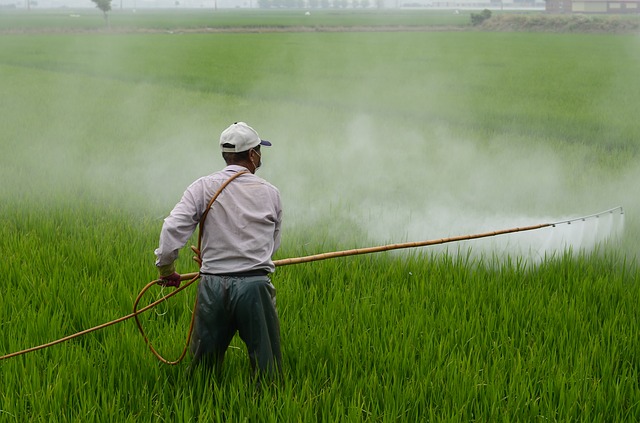The gluten intolerance and celiac disease epidemic that’s spreading worldwide is related to herbicide residues on foods we eat, according to a study published published in the Interdisciplinary Toxicology journal in 2013.
The researchers are Anthony Samsel,an independent scientist who has worked as a consultant to the EPA on arsenic pollution and to the U.S. Coast Guard on chemical hazard response, and Stephanie Seneff, senior research scientist at MIT. They analyzed close to 300 studies on the relationship between glysophate, the active ingredient in the widely-used herbicide Roundup, and gluten intolerance/celiac disease. The scientists conclude that glyphosate residues in our food are responsible for this epidemic, which already affects 5% of the USA population.
In the 1980s, Scottish farmers discovered that spraying Roundup on their wheat and barley crops 7-14 days before harvest guaranteed their crops would dry evenly before starting the harvesting operation. This is known as dessicating the grain. The practice spread to major grain-growing areas in the US and Canada where a damp climate may hinder harvest. Now the list of common foods dessicated with Roundup includes wheat, oats, barley, many kinds of beans, lentils, corn, rye, flax, triticale, buckwheat, peas, sunflower seeds, canola, sugar beets, millet and potatoes. Drenched with the herbicide, those foods inevitably have dry Roundup residues on them. Most of our food is contaminated – yes, even animals and poultry, since the Roundup residues in their feed pass on to us.
No one paid attention to Samsel and Seneff’s study at the time it was published except for Mother Earth News and The Healthy Home Economist. But in 2015, glyphosate was recognized as “probably carcinogenic” by the World Health Organization. And in August 2018, Monsanto, Roundup’s manufacturer, was ordered to pay $289 million to a California groundsworker who was diagnosed with terminal non-Hodgkin lymphoma after having mixed and sprayed hundreds of gallons of the weed killer as part of his duties. Suddenly, glyphosate is on everyone’s lips.
But glyphosate has literally been on our lips since the 1990s, when spraying Roundup on crops became almost universal. The authors of the study note that the numbers of patients diagnosed with gluten intolerance/celiac disease has risen together with the agricultural use of glyphosate.
Comparing gluten antibodies in frozen immune serum obtained between 1948-1954 to those of the modern population, researchers found that celiac disease has quadrupled.
According to the Samsel and Seneff the symptoms of glyphosate exposure closely resemble the symptoms of gluten intolerance/celiac.
“Celiac disease is associated with imbalances in gut bacteria that can be fully explained by the known effects of glyphosate on gut bacteria,” they write. Also, deficiencies in enzymes, metals, and amino acids that characterize celiac disease are proved to appear with exposure to glyphosate.
“Celiac disease patients also have a known increased risk for non-Hodgkin’s lymphoma, which has also been implicated in glyphosate exposure,” they warn. “The incidence of non-Hodgkins lymphoma has increased rapidly in most Western countries over the last few decades. Statistics from the American Cancer Society show an 80% increase since the early 1970’s, when glyphosate was first introduced on the market.”
They wind up with a dire warning about the effect of Roundup residues on our families.
“Reproductive issues associated with celiac disease, such as infertility, miscarriages, and birth defects, can also be explained by glyphosate.”
So it doesn’t seem that gluten is the big culprit for celiac symptoms; it’s Roundup. Some farmers admit to feeling uneasy about spraying crops with Roundup, but it doesn’t look like agro-business is going to mandate stopping its use any time soon. Apart from dessicating the crops for an easier, ample harvest, Roundup kills weeds off. Without it, farmers will have to go back to plowing the land and digging weeds out by hand, which is they fear will set agriculture back by decades. Many also fear losing part of their crops to damp. Roundup is also widely used in managing fruit orchards and grape vines; even in managing forestry.
The solution: go organic. It’s the only way, these days.




